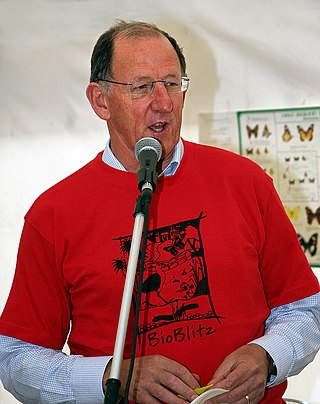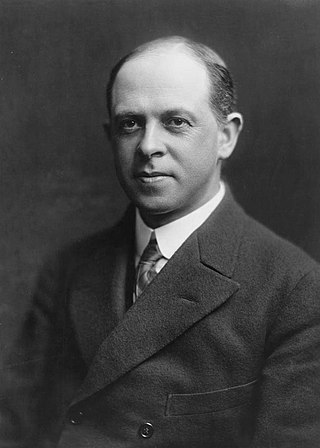
The Mayor of Auckland is the directly elected head of the Auckland Council, the local government authority for the Auckland Region in New Zealand, which it controls as a unitary authority. The position exists since October 2010 after the amalgamation of various territorial authorities. The mayor is supported by a deputy mayor.

The Mayor of Christchurch is the head of the municipal government of Christchurch, New Zealand, and presides over the Christchurch City Council. The mayor is directly elected using a First Past the Post electoral system. The current mayor, Phil Mauger, was elected in the 2022 mayoral election. The current deputy mayor is Pauline Cotter.

Mayors in New Zealand are the directly elected leaders of New Zealand's territorial authorities. They chair local council meetings and have limited executive powers, including the ability to appoint a deputy mayor, establish committees, and select chairpersons for said committees. Their constitutional role, as laid out in the Local Government Act 2002, is to provide leadership to their councillors and citizens of their districts, and to guide the direction of council plans and policies. Mayors are elected using either the first-past-the-post or single transferable vote system.

City Vision is a centre-left coalition of two political parties, the New Zealand Labour Party and the Green Party of Aotearoa New Zealand, and community independents who contest Auckland Council elections every three years. They have usually caucused in affiliation with Labour Party councillors and progressive independents.

Auckland Council is the local government council for the Auckland Region in New Zealand. It is a territorial authority that also has the responsibilities, duties and powers of a regional council and so is a unitary authority, according to the Local Government Act 2009, which established the council. The governing body consists of a mayor and 20 councillors, elected from 13 wards. There are also 149 members of 21 local boards who make decisions on matters local to their communities. It is the largest council in Oceania, with a $3 billion annual budget, $29 billion of ratepayer equity, and 9,870 full-time staff as of 30 June 2016. The council began operating on 1 November 2010, combining the functions of the previous regional council and the region's seven city and district councils into one "super council" or "super city".

The 2010 New Zealand local elections were triennial elections to select local government officials and district health board members. All elections are conducted by postal ballot, with election day being Saturday 9 October 2010.

The 2010 Auckland local elections took place from 17 September until 9 October and were conducted by postal vote. The elections were the first since the merger of the seven councils and elected the new Auckland Council, composed of the mayor and 20 councillors, and 149 members of 21 local boards. It also elected 21 district health board members and 41 licensing trust members.

The 2016 New Zealand local elections were triennial local elections to select local government officials and District Health Board members. Under section 10 of the Local Electoral Act 2001, a "general election of members of every local authority or community board must be held on the second Saturday in October in every third year" from the date the Act came into effect in 2001, meaning 8 October 2016.

The 2007 Auckland City mayoral election was part of the New Zealand local elections held that same year. In 2007, elections were held for the Mayor of Auckland plus other local government positions including nineteen city councillors. The polling was conducted using the standard first-past-the-post electoral method.

The 2004 Auckland City mayoral election was part of the New Zealand local elections held that same year. In 2004, elections were held for the Mayor of Auckland plus other local government positions including nineteen city councillors. The polling was conducted using the standard first-past-the-post electoral method.

The 2001 Auckland City mayoral election was part of the New Zealand local elections held that same year. In 2001, elections were held for the Mayor of Auckland plus other local government positions including nineteen city councillors. The polling was conducted using the standard first-past-the-post electoral method.
The 1998 Auckland City mayoral election was part of the New Zealand local elections held that same year. In 1998, elections were held for the Mayor of Auckland plus other local government positions including nineteen city councillors. The polling was conducted using the standard first-past-the-post electoral method.
The 1995 Auckland City mayoral election was part of the New Zealand local elections held that same year. In 1995, elections were held for the Mayor of Auckland plus other local government positions including twenty-four city councillors. The polling was conducted using the standard first-past-the-post electoral method.
The 1992 Auckland City mayoral election was part of the New Zealand local elections held that same year. In 1992, elections were held for the Mayor of Auckland plus other local government positions including twenty-four city councillors. The polling was conducted using the standard first-past-the-post electoral method.

The 1986 Auckland City mayoral election was part of the New Zealand local elections held that same year. In 1986, elections were held for the Mayor of Auckland plus other local government positions including twenty-one city councillors. The polling was conducted using the standard first-past-the-post electoral method.
The 1983 Auckland City mayoral election was part of the New Zealand local elections held that same year. In 1983, elections were held for the Mayor of Auckland plus other local government positions including twenty-one city councillors. The polling was conducted using the standard first-past-the-post electoral method.
The 1974 Auckland City mayoral election was part of the New Zealand local elections held that same year. In 1974, elections were held for the Mayor of Auckland plus other local government positions including twenty-one city councillors. The polling was conducted using the standard first-past-the-post electoral method.
The 1962 Auckland City mayoral election was part of the New Zealand local elections held that same year. In 1962, elections were held for the Mayor of Auckland plus other local government positions including twenty-one city councillors. The polling was conducted using the standard first-past-the-post electoral method.

The 1938 Auckland City mayoral election was part of the New Zealand local elections held that same year. In 1938, elections were held for the Mayor of Auckland plus other local government positions including twenty-one city councillors. The polling was conducted using the standard first-past-the-post electoral method.













